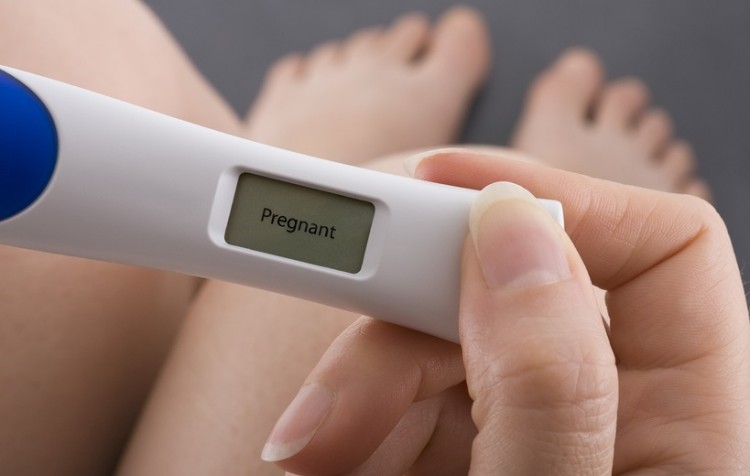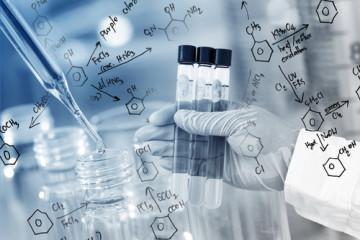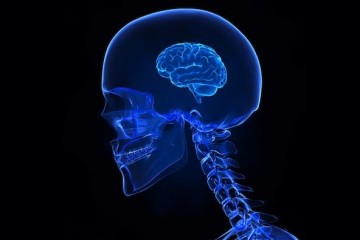How to Naturally Increase Fertility - Health Education

If you’re ready to start a family but are finding it difficult to conceive, you may have considered infertility treatments. Before you do, be sure to determine the exact cause of your infertility. This way, you may be able to naturally increase your fertility and conceive a child without medical intervention.
Common Causes of Infertility in Women
Endometriosis
Endometriosis is a common cause of infertility in women. This occurs when the endometrial tissue grows outside of the uterus, sometimes causing pelvic pain, painful periods, and pain during intercourse. It is estimated that 40 percent of women with this condition will have some degree of infertility.
Polycystic Ovary Syndrome
Polycystic ovary syndrome (PCOS) affects approximately one out of every 10 American women. This syndrome occurs when the female body produces too much androgen (male hormone), resulting in acne, the growth of facial hair, and irregular or absent periods.
Thyroid Disease
According to research, 2.3 percent of women with hyperthyroidism experience fertility problems as compared with 1.5 percent of women in the general population.
In hyperthyroidism, the butterfly-shaped gland in the neck produces too much of the thyroid hormone, resulting in sudden weight loss, hair loss, irregular periods, and anxiety.
Women with thyroid disease are at increased risk for miscarriage, preeclampsia, poor fetal growth, premature birth, and stillbirth.
Pelvic Inflammatory Disease
Pelvic inflammatory disease (PID) is a chronic inflammation of the uterus. If left untreated, it can lead to “adhesions” where tissues in around the fallopian tubes become stuck together, resulting in infertility.
Women with this condition often experience chronic pelvic pain, pain during intercourse, unusual vaginal bleeding (bleeding after intercourse or spotting between periods), rectal pain, and/or an odorous yellow or green vaginal discharge.
Common Cause of Infertility in Men
Varicocele
A varicocele is a swelling of the veins that drain the testicle. This swelling may prevent normal cooling of the testicle, resulting in reduced sperm count and motility.
Infection
A condition called prostatitis (inflammation of the prostate), inflamed testicles, infections of the urinary tract or reproductive organs, or sexually transmitted diseases such as chlamydia and gonorrhea can cause infertility in men.
Hormone Imbalances
Thyroid or adrenal conditions can prevent the hypothalamus, pituitary gland, and testicles from creating healthy sperm. Even a slight hormonal imbalance can significantly reduce a man’s chance of fathering a child.
Lifestyle and Environmental Causes
Lifestyle causes such as smoking, heavy alcohol consumption, illicit drug use, and obesity have been linked to male infertility.
Environmental causes include overheating the testicles (laptop, hot tub, biking), exposure to heavy metals, herbicides, pesticides, painting materials, benzenes, toluene, xylene, and bisphenol A (BPA).
Natural Methods to Increase Fertility
Dietary Changes
The Standard American Diet doesn’t contain the necessary nutrients the human body needs for successful procreation. It is also loaded with artificial flavors, colors, sweeteners, and additives that may make it difficult to conceive.
In order to have a child, both partners need to be in optimal health. One of the best ways to naturally increase fertility is to prepare the body for conception and pregnancy. Slowly wean off highly-processed foods and replace them with whole foods.
This means eating plenty of organic vegetables, fruits, nuts, seeds, legumes, meat, poultry, fish, eggs, and healthy fats like butter, avocado, and coconut oil.
Adopting a gluten-free diet may also help you conceive a baby naturally. If one or both partners is sensitive to gluten (the protein found in wheat, barley, and rye), it could cause inflammation, hormonal imbalance, and thyroid problems that will interfere with conception.
Lifestyle Changes
Smoking, heavy alcohol consumption, and obesity can make it difficult to have a baby. Commit to quitting together and take up a regular exercise routine to ready yourselves for pregnancy, childbirth, and child-rearing.
Also, reduce your stress levels. Stress can cause inflammation and hormonal imbalances that may make getting pregnant difficult. Take a yoga or meditation class together. This will not only reduce your stress but deepen your connection to one another.
Men, don’t get into a hot tub too often, go biking regularly, or put your laptop right on your lap when you’re trying to conceive.
Supplements
Vitamin C - Research has shown that vitamin C improves sperm count, sperm motility, and sperm morphology.
Vitamin D - In a laboratory study, vitamin D deficiency reduced overall fertility by 75 percent in female rats. Since vitamin D deficiency is the most common vitamin deficiency in the United States and Canada, it is important for women experiencing infertility to get tested.
In order to conceive a baby naturally, start by determining the cause of your infertility. Then, use these suggestions to naturally increase fertility so you and your partner can start the family you’ve always wanted.
Sources:
http://www.medicalnewstoday.com/articles/207009.php
http://online.liebertpub.com/doi/abs/10.1089/jmf.2006.9.440
http://europepmc.org/abstract/med/7400847



